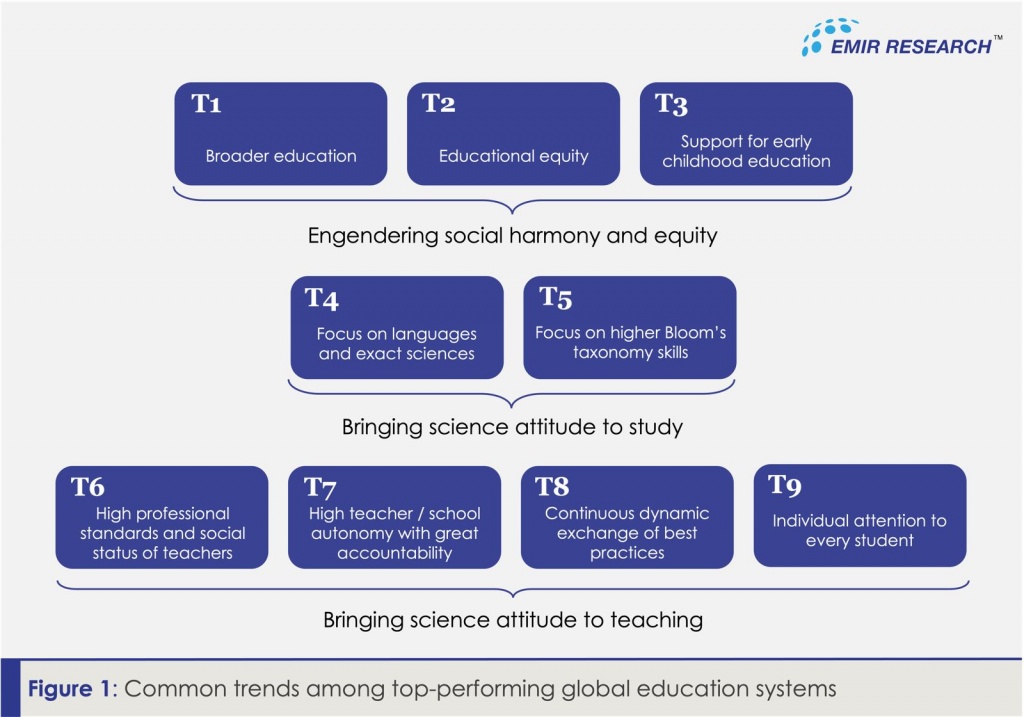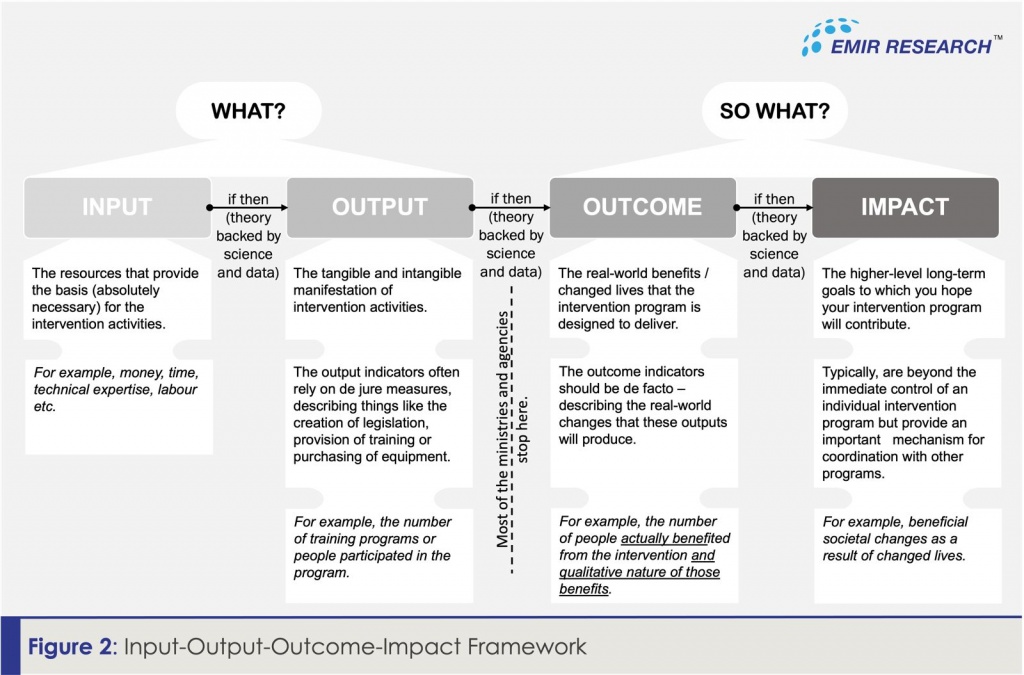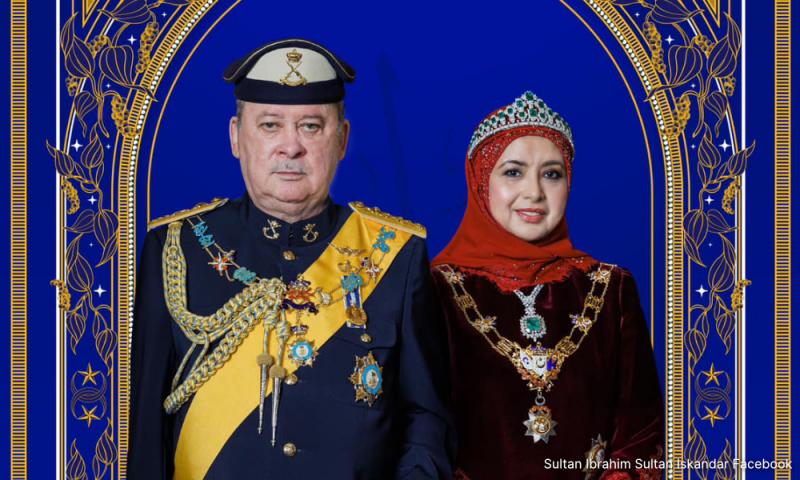
Published by AstroAwani & BusinessToday, image by AstroAwani.
EMIR Research has consistently called for the government’s attention that preschool education in our country needs to be synchronised with the best educational global practices for better educational equity.
However, EMIR Research has suggested this step as only one element in the context of a wider coordinated strategy or framework that is direly needed to transform the Malaysian education system from preschool to tertiary level — refer to the earlier report by EMIR Research “Urgent Need to Reform Malaysian Education System” from 3 April 2023.
To glean from the valuable experience of countries with excellent education systems, EMIR Research has first identified countries that consistently appear on the top of the list, based on a comprehensive review of various global education indices, opinion-based measures (global surveys) and international test scores.
As a second step, EMIR Research analysed the educational policies of these top performers. In fact, it was difficult not to notice remarkable similarities in their approaches which can be identified as significant global trends in best educational practices. EMIR Research has identified at least nine such big trends (Figure 1), of which “educational equity” and “support for early childhood education” are the elements that align with this recent call by the Malaysian government.

As EMIR Research consistently observed in its analysis, in the top-education countries, there are almost no private schools (or any lists of “best schools”) because they are not needed, given the government’s solid commitment to providing free education of the highest quality to all children irrespective of their ethnicity, location (urban/rural) or size of their parents’ pay cheques! Achieving equitably shared prosperity for the nation is simply impossible with an unequal and highly segregated national education system.
Therefore, EMIR Research believes this is a very highly commendable step by Prime Minister Datuk Seri Anwar Ibrahim and his administration to relook into how to restore long-needed education equity in our country. The hope is also that such a step is taken in the context of broader and immediate reforms that are aimed at transforming the entire education ecosystem in the country in line with best global practices (Figure 1).
As per what empirical findings strongly suggest, among the top-performing educational systems worldwide, subsidising early education by the government (e.g. Canada, Denmark, Finland, Germany, New Zealand, Norway, South Korea, United Kingdom), support of the public and private sector by providing at premises childcare facilities (e.g. the United States) and reducing the age of compulsory education (e.g. Belgium, Netherlands, Switzerland) unanimously is given great attention.
Furthermore, top-education nations either get rid of or significantly postpone until older age the selection into different schools, selection into different classes or tracks within a school based on performance and/or for individual subjects (e.g. Belgium, Denmark, Finland, Japan, Netherlands, New Zealand, Norway, Singapore etc.). With ample empirical evidence, these segregation practices disadvantage students from lower socio-economic backgrounds and maintain and deepen regional, social and gender inequality. Meanwhile, postponing or eliminating such segregation was found to have, at least, no negative impact on the overall performance!
Some top-education nations made private schools part of this system by funding them and prohibiting them from charging fees or selecting students based on abilities. There are also heavy incentives for the top-performing teachers to take rural hardship postings.
Therefore, EMIR Research hopes that the government will consider embarking on similar policy initiatives.
Very early education of the highest quality accessible to all is not only paramount to the national education ecosystem but is also fundamental to nation-building. There can be no national educational excellence without stronger equity of outcomes!
Meanwhile, according to psychologists, problems at school age are more than 50% associated with difficulties in the early development of children.
Access to high-quality early childhood education is empirically related to better intellectual and social development and is found to be particularly beneficial to children from the most disadvantaged backgrounds (e.g. “The Effective Provision of Pre-School Education Project”). This is not surprising, as neurological and social studies have shown that most brain (90%) and neural pathways (85%) growth occurs during the first five years of life.
Coming back to the best global educational practices (Figure 1), EMIR Research believes that one of the urgent matters the government should look into to supplement its efforts towards restoring educational equity is the quality of educators at all levels, but especially at preschool and primary.
A student’s success depends primarily on the impactful teachers they meet on their academic voyage. This is why one common trend among the top-education nations is that a teacher is a highly respected, highly paid job requiring one of the highest qualifications in those countries.
Teaching cannot be simply subcontracted to those who could not find placement elsewhere in the industry.
Among the top-education nations, at least a Master’s degree is a common requirement for a teacher in a school at all levels in an attempt to bring more science to pedagogical practice! However, more often, they hold dual PhDs, one in education and one in their respective teaching fields. For example, in Finland, becoming a teacher is more challenging than becoming a medical doctor. Germany, Japan, Netherlands, Singapore, and Switzerland are a few other countries where pedagogy is as serious field as medicine or law.
Remarkably, these nations place the most qualified teachers at pre- and primary schools!
Furthermore, obsession with the highest pedagogical qualification naturally complements another common trend observed in top-education nations — high teacher/school autonomy with great accountability. Because in the top-education nations, teachers at all levels are highly-learned professionals who bring science to pedagogical practice, they enjoy greater freedom to innovate and experiment with new teaching methods. In many top-education countries, the teaching profession is one of the most creative and free.
An extensive degree of autonomy is granted to individual schools but with the accountability to demonstrate specific outcomes and impacts. The government sets minimum attainment targets that specify the knowledge, skills and attitudes students should demonstrate by the end.
The above considerations are crucial to ensure success in harmonising Malaysian preschool education and beyond.
Government expenditures are totally fine as long as they are employed in a manner that guarantees the desired national outcomes and intergenerational impacts for the nation.
Generally, an impactful intervention program must be driven by data and science. There is a robust framework to design any impactful intervention program – Input-Output-Outcome-Impact (IOOI) model.
EMIR Research has been long advocating the IOOI framework (refer to “Transforming Malaysia from third- to first-world country” and “Recalibrating National Budget – Eradicating Leakages and Corruption”) to be immediately institutionalised as an absolute requirement across all the government ministries and agencies if we want to move anywhere, in the right direction, as a nation. The IOOI framework (Figure 2) is logical and robust reasoning (solely based on science and data) of the entire causal path from inputs (scarce resources / capitals) to outputs (tangible and intangible manifestation of intervention activities) to outcomes (real-world benefits / changed lives) and finally to impacts (higher-level intergenerational goals, if we speak in the context of a nation).

In other words, when policymakers embark on an initiative, they must convince us, the public, that there is a solid basis in the form of empirical evidence and an established body of scientific knowledge to believe that spinning out an N amount of resources on specific outputs will result in the desired outcomes and intergenerational impacts.
From what has transpired so far from the current administration, it is not clear how comprehensive and data-driven the planned interventions to reform the Malaysian education system are.
However, we believe that if the government aligns their efforts with the empirically derived best education practices we observe (refer to Figure 1 again), it will be able to maximise outcomes and impacts for the nation per every ringgit spent.
For example, the government has already voiced their intention to improve educational facilities, including digitalisation assets across preschools. But how about employing the best professional educators who are able to bring the scientific method to the classroom and, therefore, are the best empowered to identify what specific equipment and facilities are needed to maximise the desired outcome while considering local idiosyncrasies?
Such robust, institutionalised IOOI reasoning can effectively safeguard against the significant risks of waste and corruption inherent in government procurement processes. Indeed, refurbishing toilets is important. Equally, the RM1 Billion can also be spent on the outputs that are directly and empirically linked to superior outcomes for the education system and impacts for the nation, to which PM wittily alluded!
In the final analysis, the recent government call to review the preschool education system is commendable. However, the hope is that this time around, this effort will be comprehensive and IOOI-based, i.e. solely backed by data and science.
Dr Rais Hussin is the Founder of EMIR Research, a think tank focused on strategic policy recommendations based on rigorous research.

